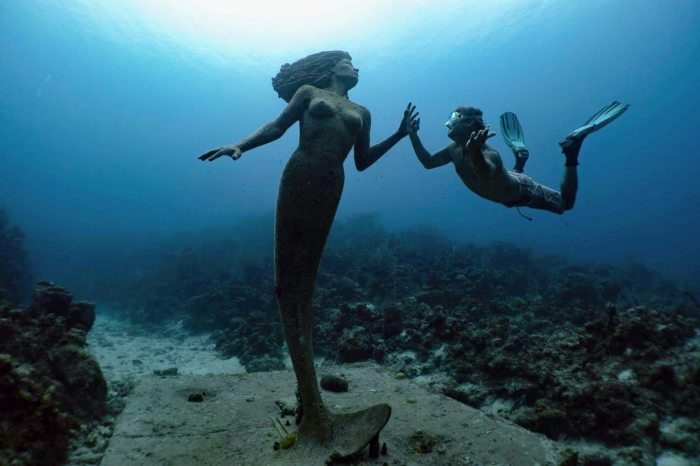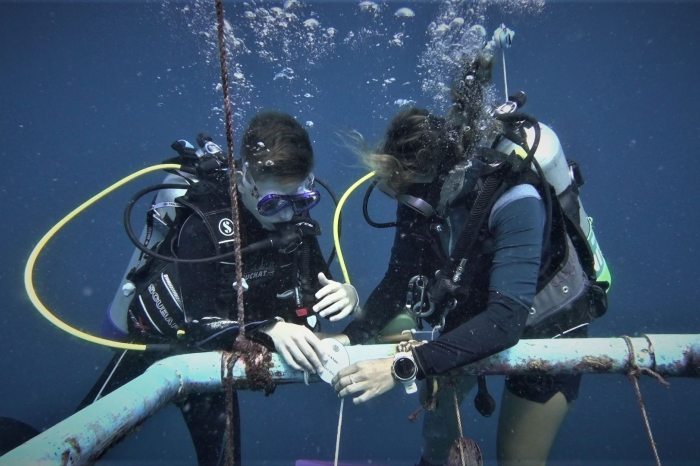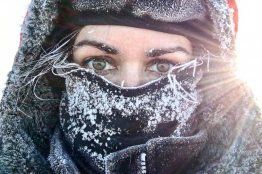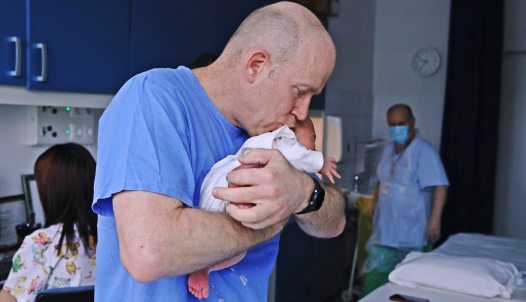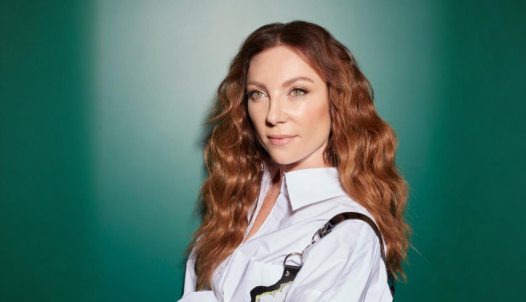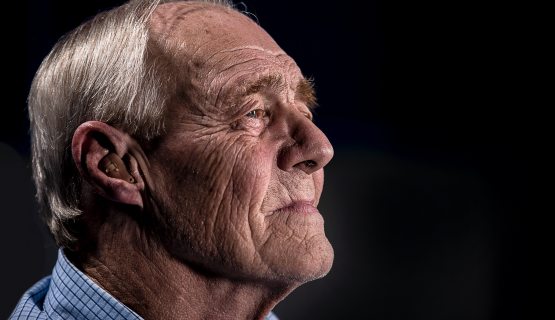“Bitten by a shark? You must be kidding!” – interview with Emil Karáth marine biologist, underwater cameraman
Emil Karáth, marine biologist, professional diver and award-winning filmmaker, has an extremely adventurous life. He has often been the only Hungarian to take part in special international environmental projects, working in the Indian Ocean, the Caribbean Sea and in isolated places where he could not even expect medical help in case of injury. In his decades of work he has witnessed the destruction of the underwater world, but he believes there is hope if we can get future generations involved.
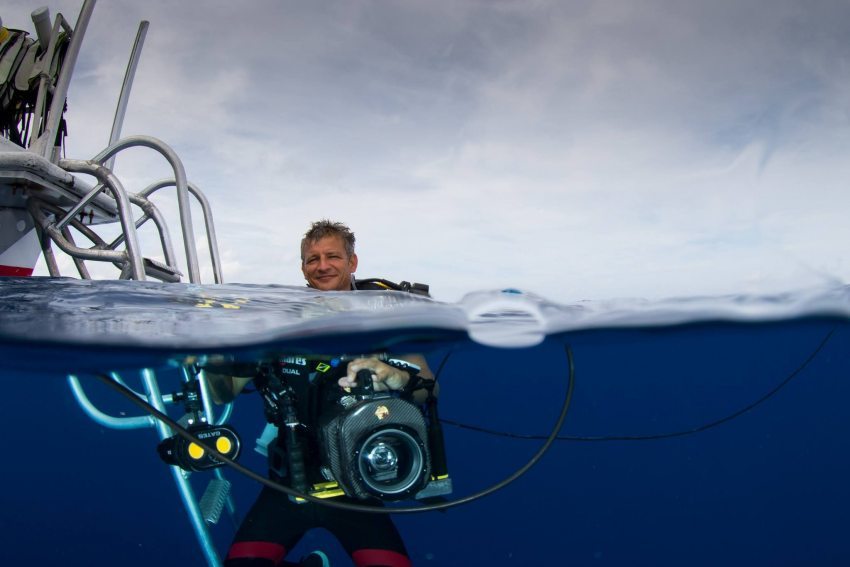
How do you remember your first really exciting underwater job?
When the Tropicarium was still being built, I applied as a marine biologist. I was there when it was still a concrete jungle, I was the one who brought in the alligators from Sweden, and received the sharks from Florida. At night I had to carry them under my arm and swim around with them because when they arrived they were so stressed that they couldn't come around immediately, and if they didn't swim they would sink to the bottom of the pool and drown.
Is it dangerous to swim with sharks under your arm?
No. I was bitten by one once, but that was my fault. We had the attraction of feeding them in front of the visitors. Three sharks came from different directions and I let go of the fish too late, so one bit my finger.
Did it have to be sewn back on?
No. He only sank his tooth in it, I couldn't feel my finger for a few months.
I went to the doctor, and when he asked me what had happened, I told him the truth: I had been bitten by a shark. He said I "must be kidding ", and should rather tell him how I had really got hurt.
Lake Balaton is often referred to as the Hungarian sea, but it is still unusual for someone to become a marine biologist in Hungary. How did you decide to choose this profession?
I swam competitively as a kid, then became an adult national team diver, won world championships and European championships, and because I was interested in biology, I decided to become a marine biologist.
Were you filming back then too?
The first global marine survey was carried out in 1997. I was working as an industrial diver in Germany and read the ad there. I went to the Maldives with a group of Swiss biologists. At that time, the area was not so popular among tourists, so when my daughter was at kindergarten and the kindergarten teacher asked her where her daddy was and she told her that he was on Maldives Island, the kindergarten teacher corrected her by saying "that's not Maldives Island, Eszter, it's Margaret Island" (laughs). We had to assess the health of the coral reefs and the damage caused by human activity. At the end of the nineties the reefs were relatively healthy, and then when we returned there was the first big natural disaster that caused serious damage. El Nino came, and it warmed the water so much that ninety percent of the coral died.
When I first saw it, it was full of life, and then it was a Martian landscape.
I got into filming when I took an underwater camera as a hobby with a German colleague and we filmed what we were doing. I took the footage to a film studio and they were very interested in the subject. They said, here's an apprentice editor, sit in the editing room and do what you want. We sat there for a month, I had no idea what I was doing, but then we made a 25-minute film that won two festivals. A couple of years ago I was involved in a special production: we made an interactive program underwater, which was broadcast online. The concept was to have two Australian and one Scottish presenters talking about the local coral reef life. To make it work, I had to drag a 300-meter-long optic cable with me underwater.
How far away from civilization are the areas where you are filming?
In some places, there’s really just us and nature. Just before the pandemic broke out, I was in Papua, where we were filming a documentary. We were warned not to get hurt because there were no telephones, no internet, and no medical help. There are a lot of tiny islands in this area with small, sugarloaf-shaped mountains, and the one with the 'dented center' has a lake in the center of the island. To reach the water, however, we had to climb the mountain, through the jungle, in the pouring rain, over razor-sharp rocks, carrying our torches, cameras, and tripods.
Did everyone survive the adventure?
When my other cameraman colleague dived down to the bottom of the lake, he may have swallowed a drop or two of water.
It must have been poisonous because he was dying for four days and we didn't know what was going to happen to him, but he survived.
I just got an ear infection. They threw us into a pod of 400 dolphins, and it's very exciting to see these animals charging towards you, but they're defecating into the water, and the camera got very dirty. And their faeces are full of bacteria, which caused the infection in my ears, but I got some drops from the captain and after a few days I was back diving again. When we returned with the boat, we found out that a pandemic had broken out. We hadn't even disembarked when a team came on board with masks and a thermometer, and we just watched what was happening. Then we were going to Komodo to film dragons, but that didn't work out because of the virus. However, last August, I found out that they were looking for volunteers for Tanzania and I was involved in a coral repatriation program in Africa.
Has the pandemic made travel difficult?
You could go to Tanzania with a vaccination and a negative PCR test. There we travelled to an island where we shared the area with monkeys only. We had to be careful with them because if we left our clothes outside, they would steal them. They didn't take our shoes, but it was not advisable to leave them outside either, because they liked to poop into them. We lived on top of the baobab tree.
In what condition have you found the corals in Tanzania?
There they fish with dynamite, which leaves behind a lunar landscape. There are pieces of coral, a few centimetres long, which are broken off but still alive, to be collected from the sea floor. The local women weave ropes of coconut fibre to string them on. In nine months, the coral pieces grow so large that they can be taken off the ropes and then, using cement that binds underwater, the divers stick them to the bottom to grow.
Life may come back there in a few decades, but if the fishermen carry on like this, they won't be able to feed their children. That is what they need to be made to understand.
You talk about your dives as calmly as if it was the most natural thing in the world to encounter sharks and alligators. I can't imagine the adrenaline not working in you when you're filming...
Of course it works, but if you know how to behave, no harm will be done. I've dived with sharks many times, and humans are not on their menu. Sometimes they attack them by mistake, but the victims of shark attacks usually die from their wounds, not because the animal ate them. It's not even the dangerous-looking animals that are the most hazardous, but rather the ones that you often don't even notice and still can kill you. For example, the tiny blue-ringed octopus, or the tentacle of the box jellyfish. Clothes protect me for the most part, of course I still often have stings all over my hands and mouth, but they only itch for a few days.
Living the Indiana Jones lifestyle, there must have been times when you were glad to get out of the water alive...
(Thinks about it) There was one. When I was six, I was on holiday at my grandparents' place and I got into the drain of my grandfather's pool. I was glad to get out of the water then because you don't usually survive that.
What happened?
The drainpipe sucked me down. By that time there were not many visitors in the swimming pool, but they let us in and I was curious to see how the water went down, I got too close - and I went down. The pipe ends in a stream, but there's a settling pit in between.
I was lucky that the sluice was raised enough for me to get under it because if I couldn't get under it, it was all over. I thought I was going to die.
Luckily I was able to stand up in the pit, the water was up to my chest, and I was shouting from under a cover. Two ladies pulled me out, and since I was floating in a concrete pipe, I had practically no skin left, I was dripping blood, and they took me to my grandparents. I spent the whole summer like a mummy, wrapped in gauze.
And yet you jumped back in the water...
The following year I swam in the same pool (laughs). Water is my life.
You sound like that’s the reason you're determined to do all you can to save wildlife.
I want to involve the next generation in the work so that they understand that this has to be dealt with. I'm currently working on my own website with which we can get involved in marine conservation projects that children can actively contribute to.
Could the damage be reversed then?
Maybe, but only if everything worked as it should. But that's very difficult. Climate change is warming the waters, changing the currents, putting more carbon dioxide into the atmosphere, which is being absorbed by the sea, and acidifying the water, making it much harder for calcified organisms to build their bodies. On top of that, overfishing, dynamite, litter, and water from the land carrying too many nutrients into the sea causes algal blooms, which drown everything else in the area. But that doesn't mean we are completely helpless. My children really enjoyed taking part in coral restoration on the tiny island of Velaa in the Maldives, where the largest such program in the country is taking place. It's true that they can't see as much as I did thirty years ago, but their generation still has a chance to improve the situation.
